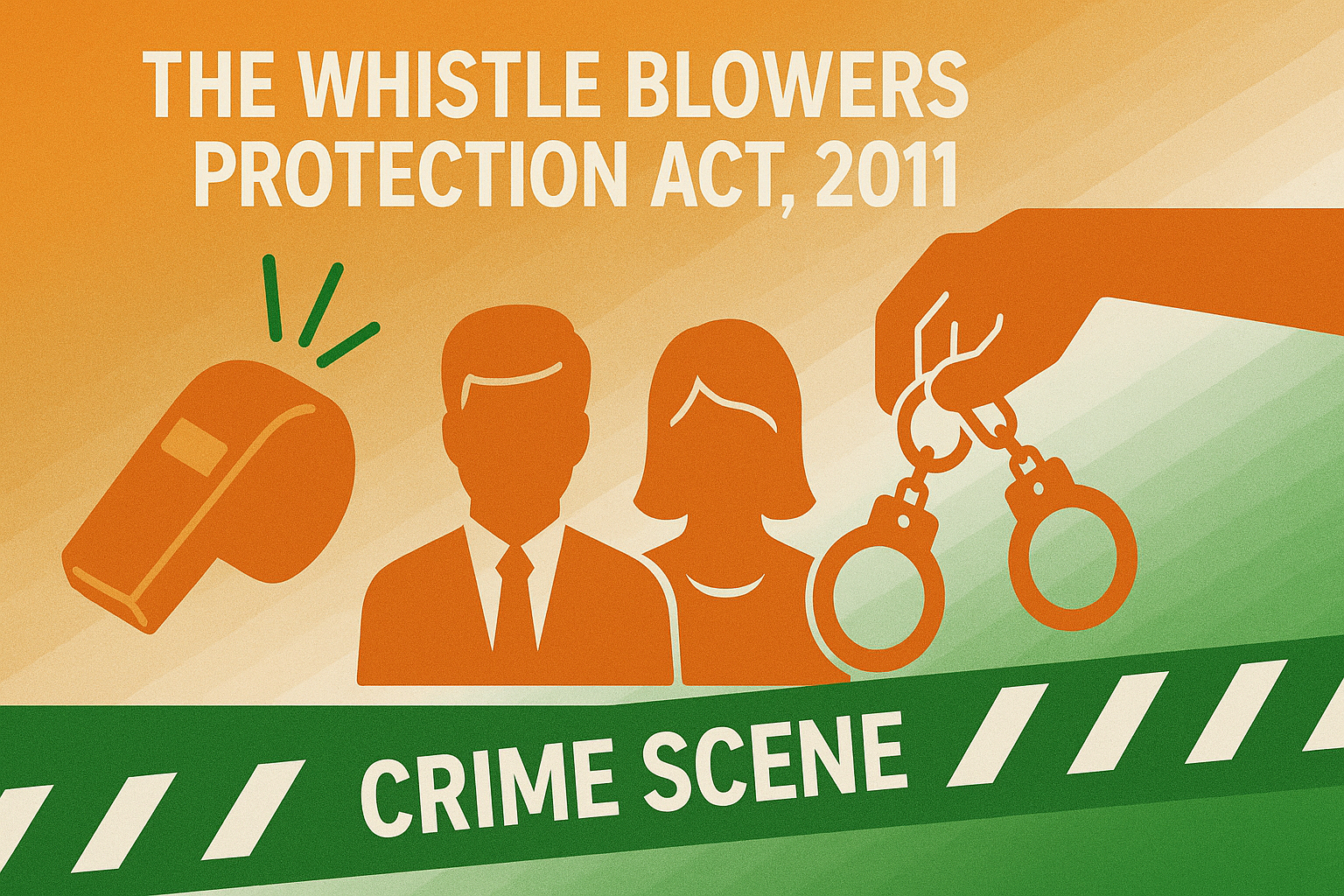In a democratic polity founded upon constitutional morality and rule of law, the protection of individuals who expose corruption, maladministration, and illegality is not merely a statutory duty but a civilizational imperative. The Whistle Blowers Protection Act, 2011 (hereinafter “the Act”), was envisaged as a cornerstone in India’s fight against entrenched corruption. However, over a decade since its passage, the law remains under-implemented, diluted, and vulnerable to executive apathy. This article critically explores the legislative architecture, judicial interpretation, landmark case laws, and recent developments concerning the Act. It also examines the philosophical tension between national security and the right to disclosure and proposes reforms in light of global best practices.
Whistleblowing has emerged as a powerful tool for strengthening transparency and accountability within public institutions. In India, whistleblowers have historically played an indispensable role in exposing fraud and systemic rot. From Satyendra Dubey’s tragic demise in 2003 to the unrelenting activism of Indian Revenue Services officer Sanjiv Chaturvedi, the call for a statutory shield for whistleblowers has resonated with civil society, the judiciary, and international human rights mechanisms. In response to mounting pressure and judicial nudging, Parliament enacted the Whistle Blowers Protection Act in 2011, which came into force on May 12, 2014.
Legislative Framework and Object
The Act aims “to establish a mechanism to receive complaints relating to disclosure on any allegation of corruption or wilful misuse of power or discretion” and provides protection to persons making such disclosures. Its statutory goals include:
– Protection of persons making disclosures (Section 4).
– Establishment of a competent authority to investigate disclosures (Section 3).
– Safeguards against victimization (Section 11).
– Penal provisions against frivolous or mala fide disclosures (Section 17).
The law defines a “whistleblower” as any public servant or citizen who discloses information about corruption, abuse of power, or criminal offence to the competent authority.
The Satyendra Dubey Catalyst and Judicial Persuasion
The brutal murder of NHAI engineer Satyendra Dubey in 2003, after he exposed large-scale corruption in the Golden Quadrilateral highway project, created a national uproar. His death became emblematic of the State’s inability to protect conscientious officials. In Common Cause v. Union of India, [(2004) 5 SCC 222], the Supreme Court emphasised the urgent need for legislative protection to ensure that “truth-tellers are not martyred for their integrity.”
Furthermore, the Law Commission of India, in its 179th Report (2001), had already recommended a comprehensive statutory framework for whistleblower protection, citing global models like the U.S. Whistleblower Protection Act (1989) and the UK Public Interest Disclosure Act (1998).

